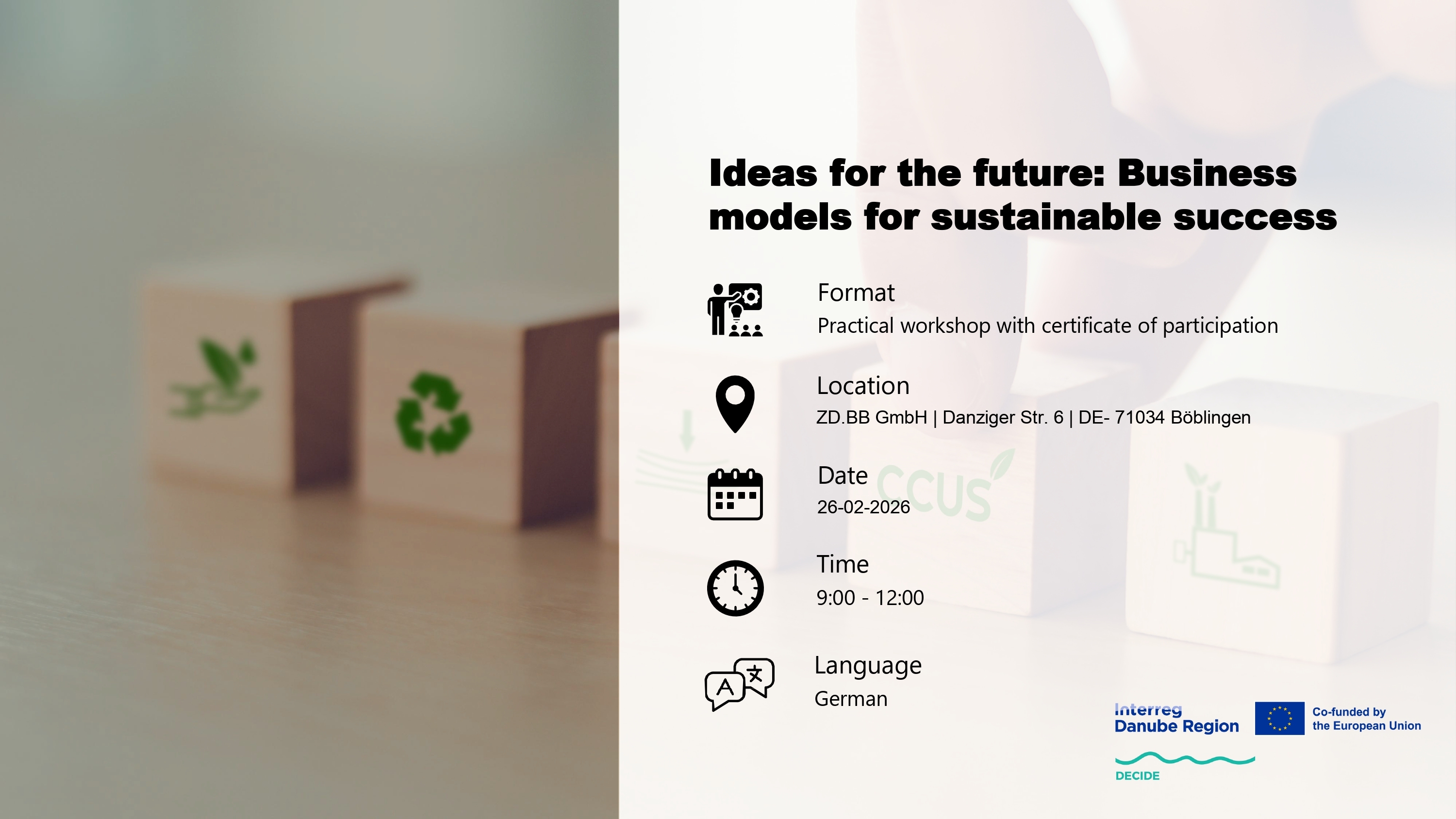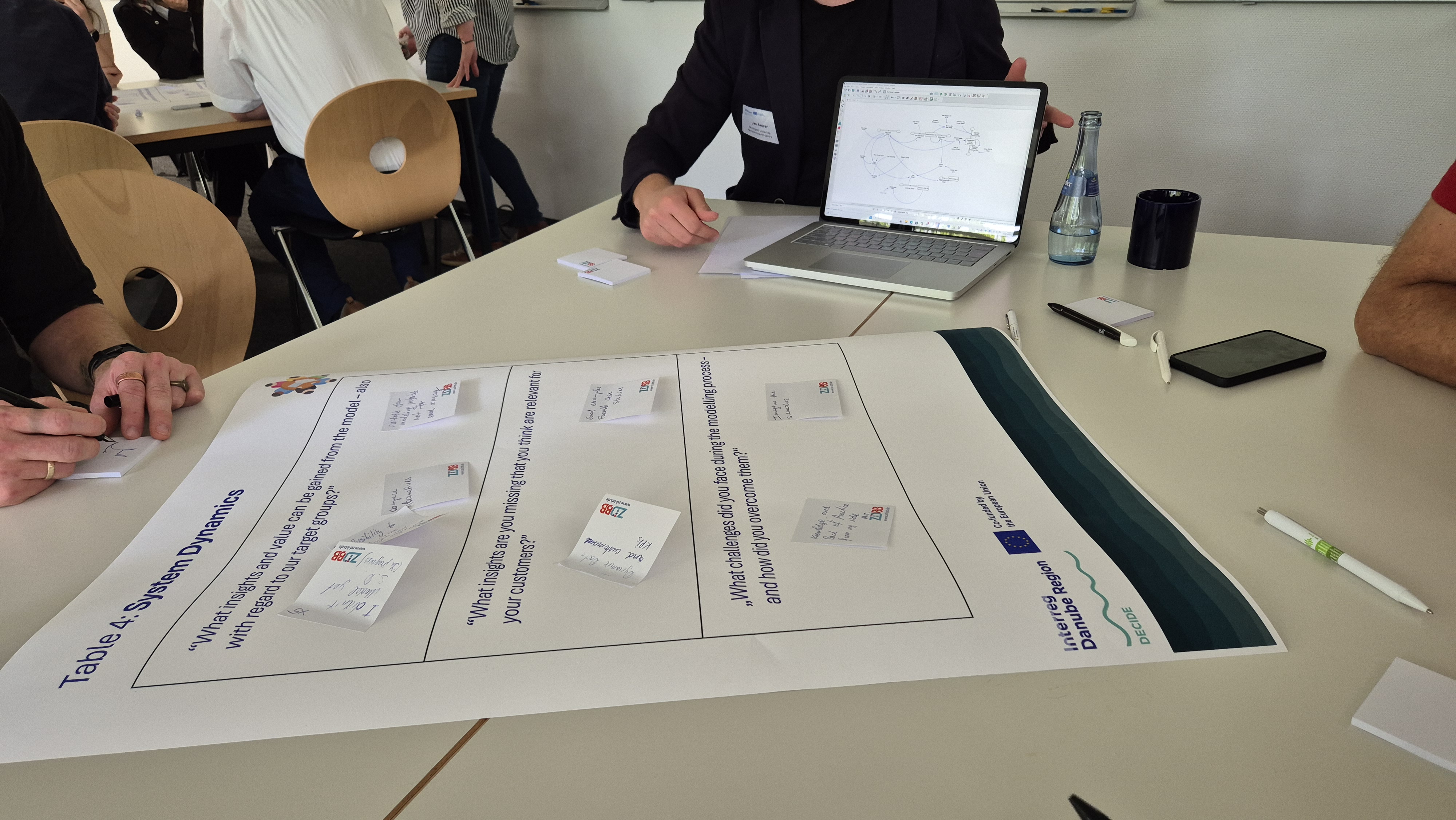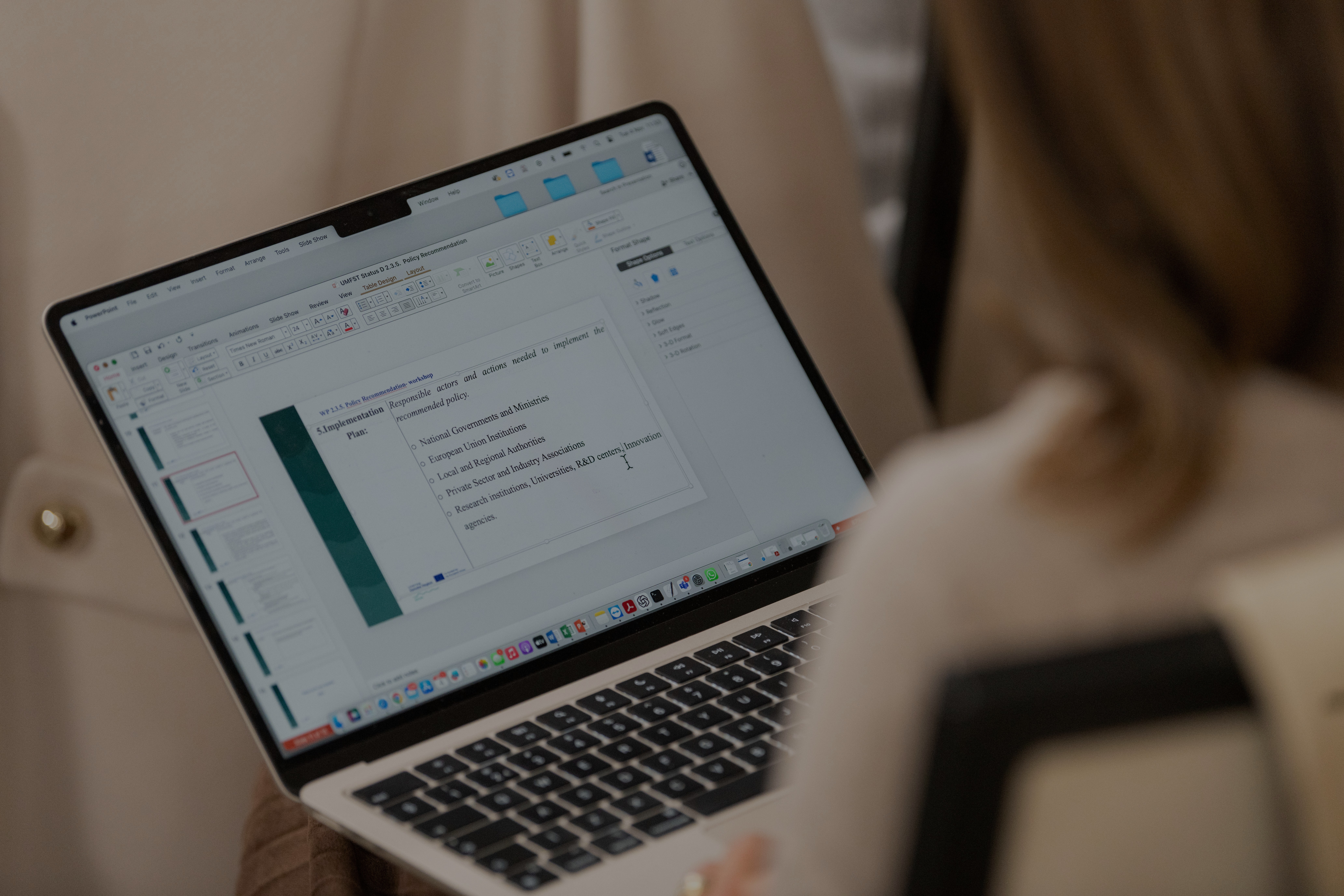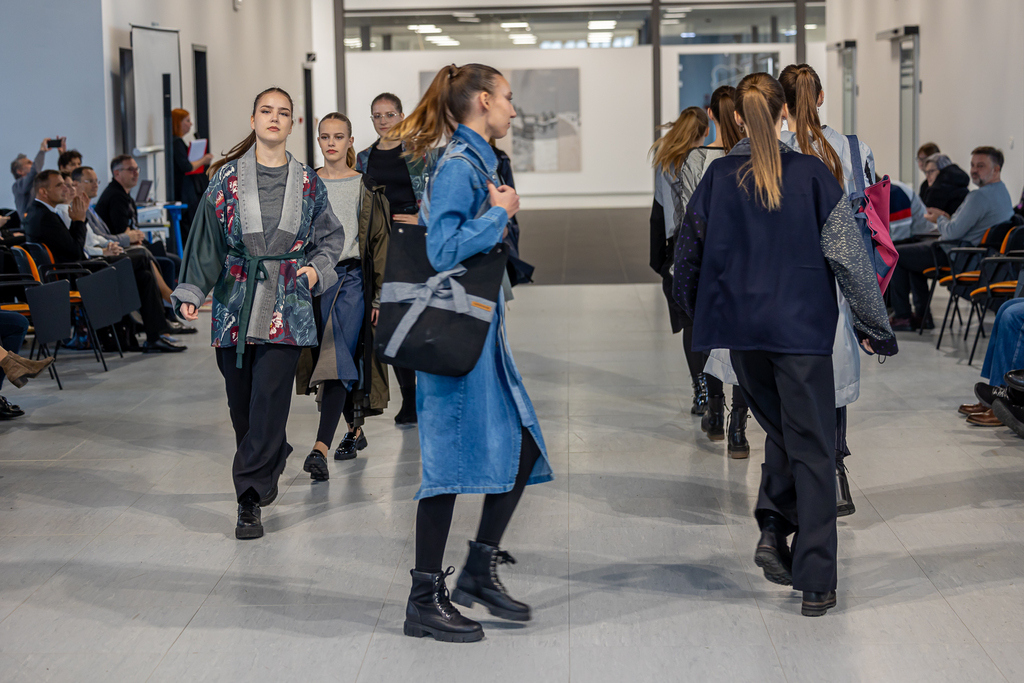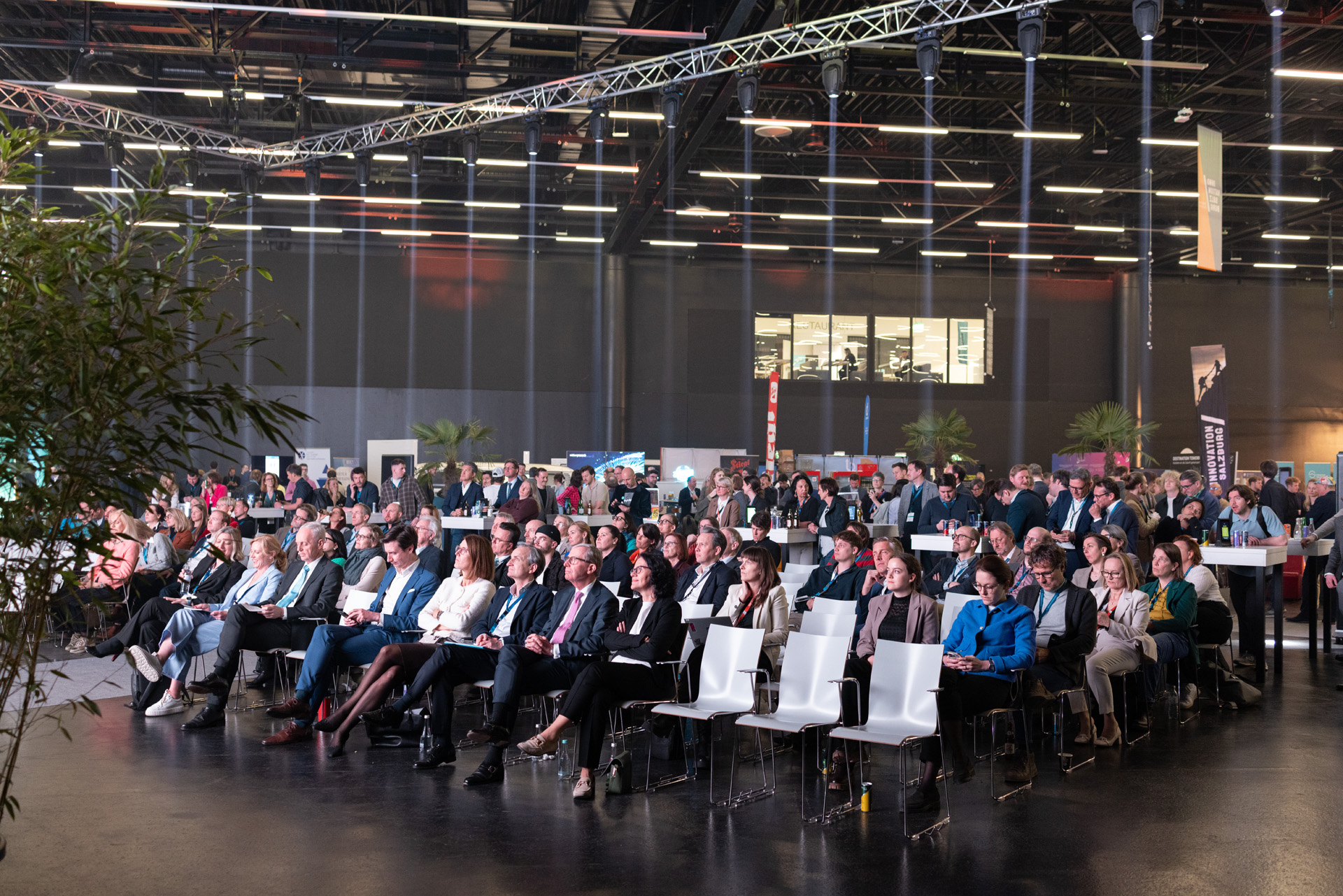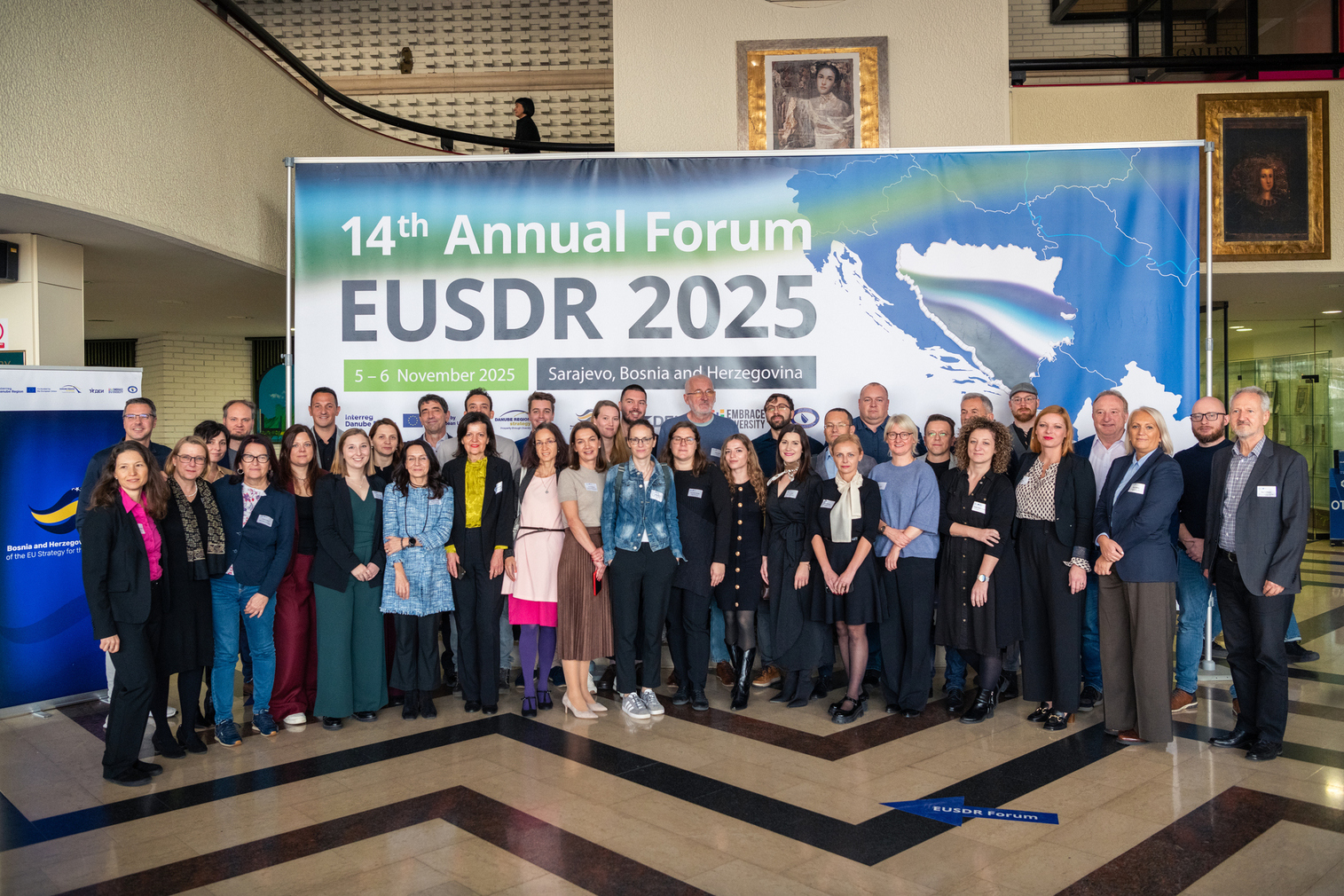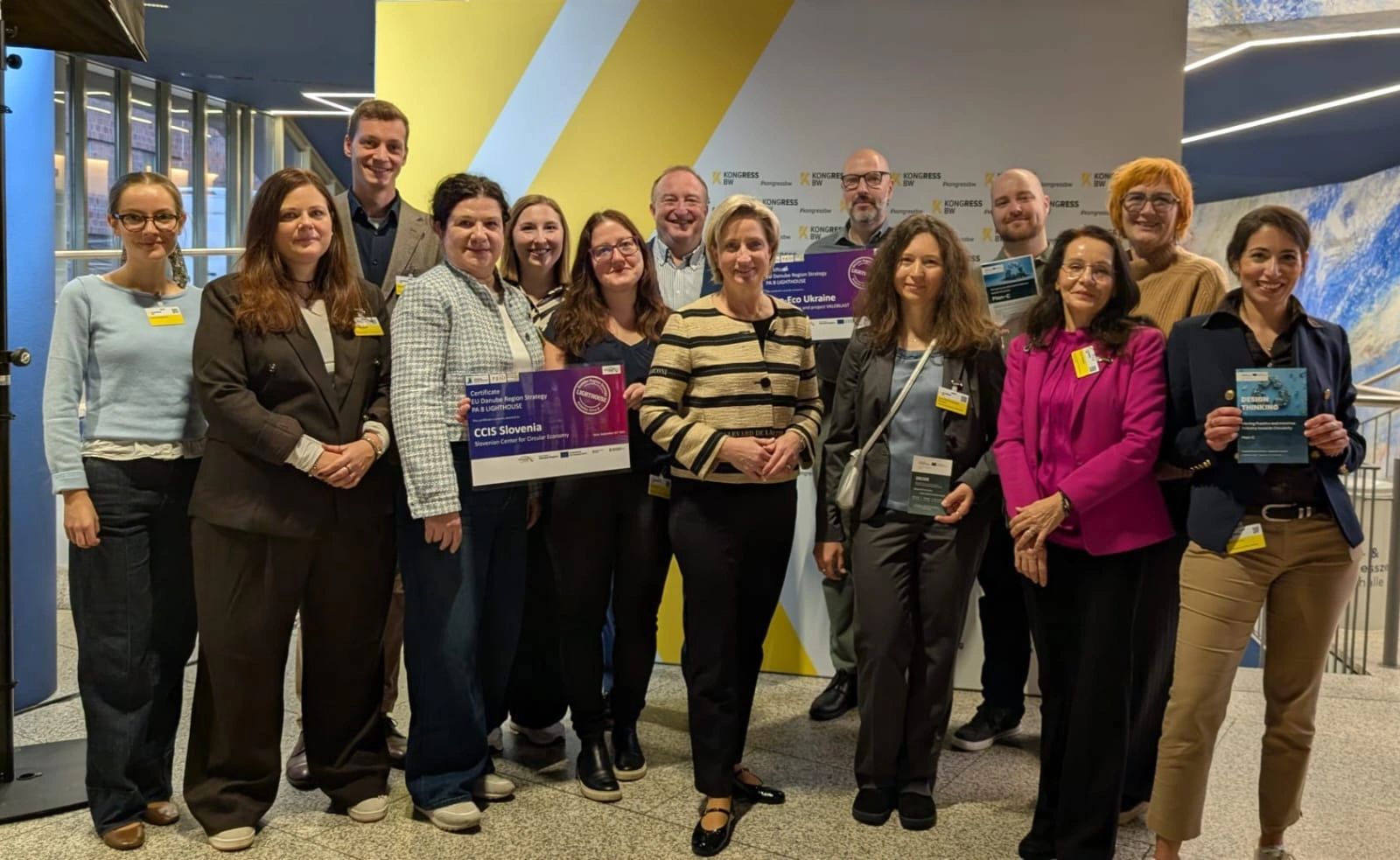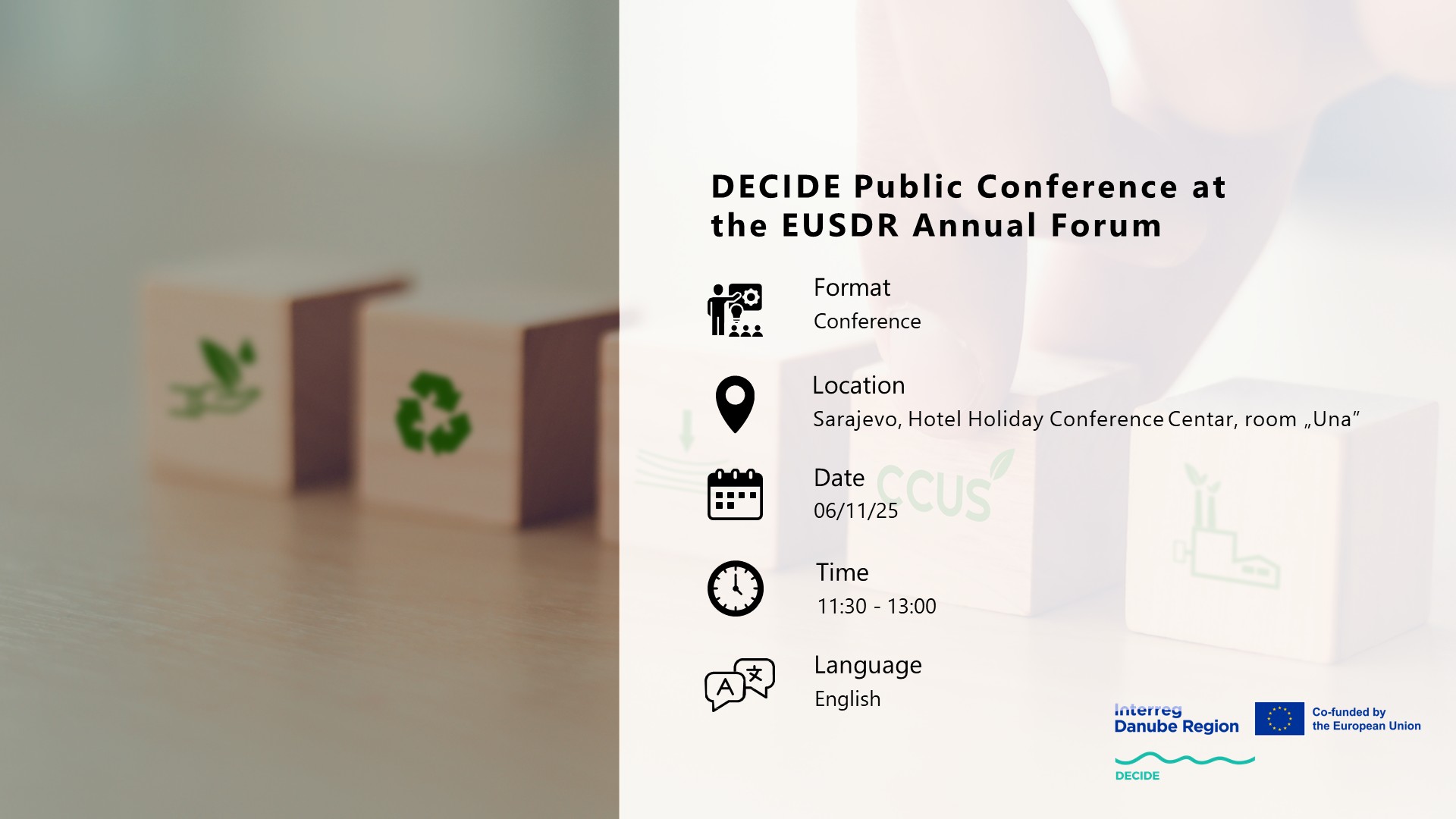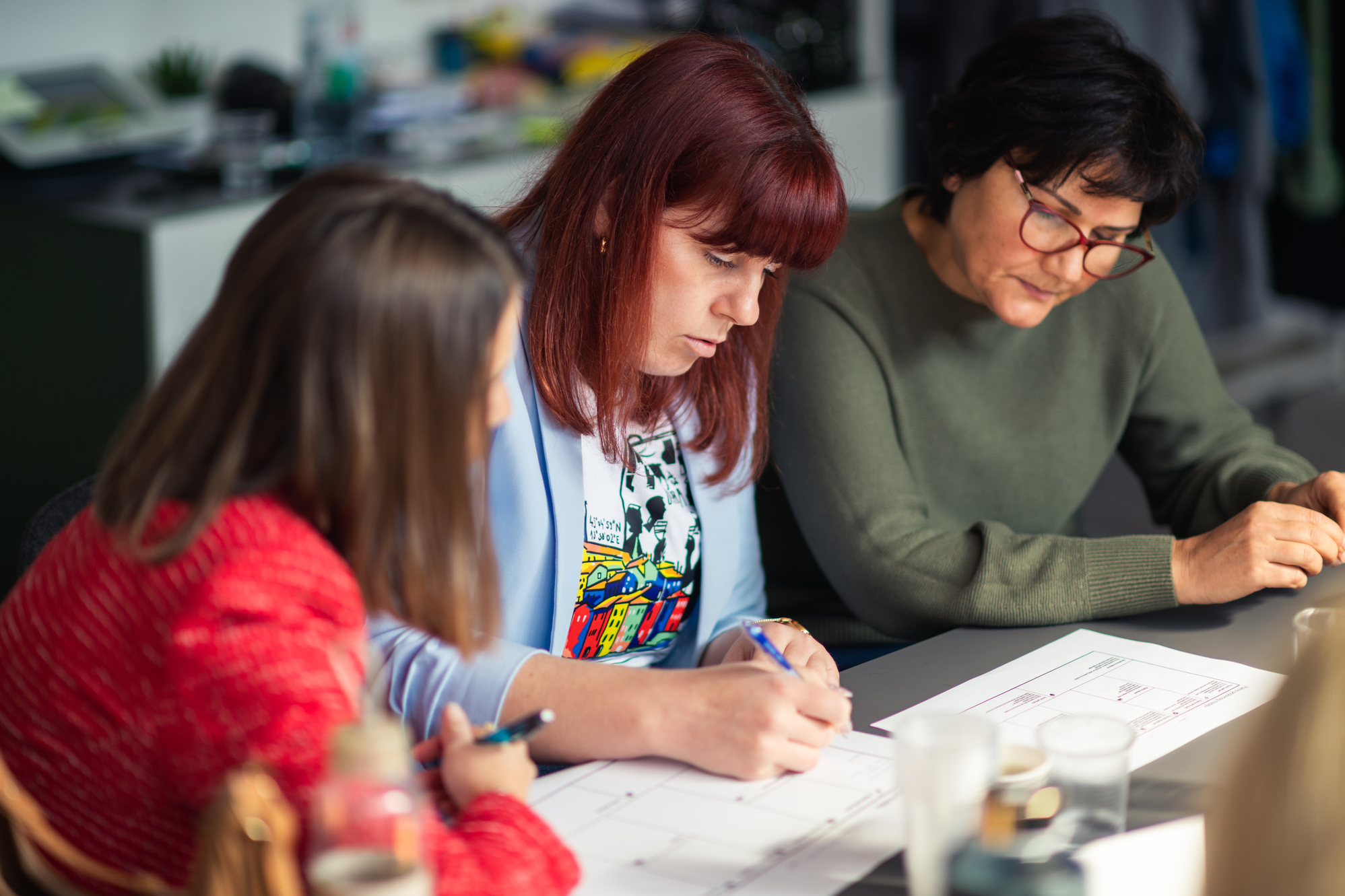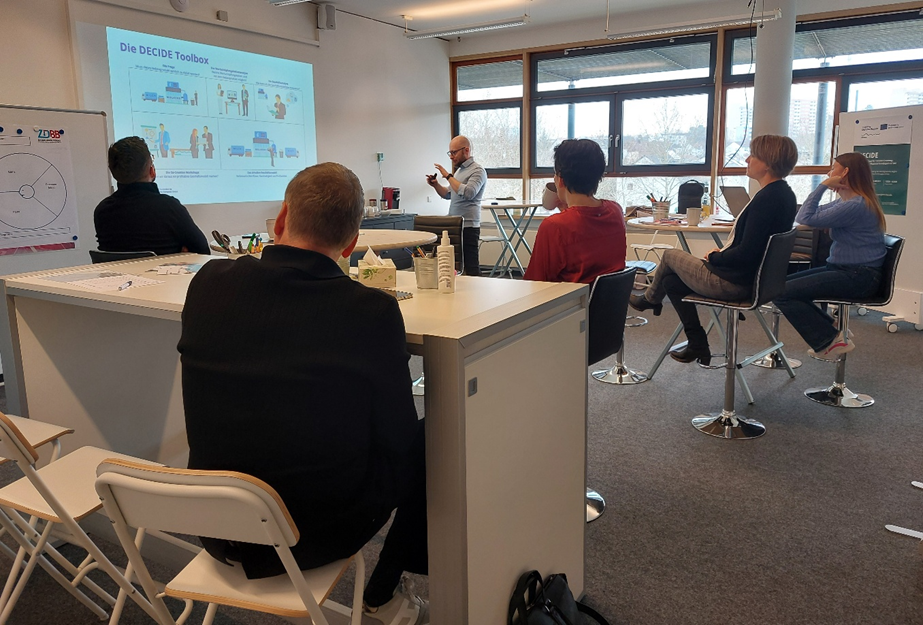
DECIDE WORKSHOP CONCEPT: A FLEXIBLE GUIDE TO EMPOWER CIRCULAR ECONOMY LEARNING AND ACTION
The DECIDE project supports SMEs, public authorities, and innovation actors in adopting circular economy (CE) principles through collaborative tools, training, and strategic support.
As part of its knowledge-sharing activities, the DECIDE project team developed a detailed guide for organising circular economy workshops. The DECIDE Workshop Concept is a structured yet adaptable framework to help project partners and external users organise impactful workshops that build CE knowledge and enable practical application of DECIDE tools.
The DECIDE D2.3.1 Workshop Concept represents a key outcome of Activity A2.3: Dissemination and Knowledge Sharing. The deliverable creation was led by ZD.BB GmbH, the DECIDE project lead partner. It was designed to facilitate the effective transfer of circular economy knowledge across the Danube region.
A Practical and Strategic Resource for Workshop Organisers
This deliverable serves both as a strategic platform and a practical guidebook for future workshop organisers. At its core, the Workshop Concept offers detailed guidance, proven methods, and ready-to-use formats that help organisers design CE workshops depending on their audience’s needs, experience level, and local context.
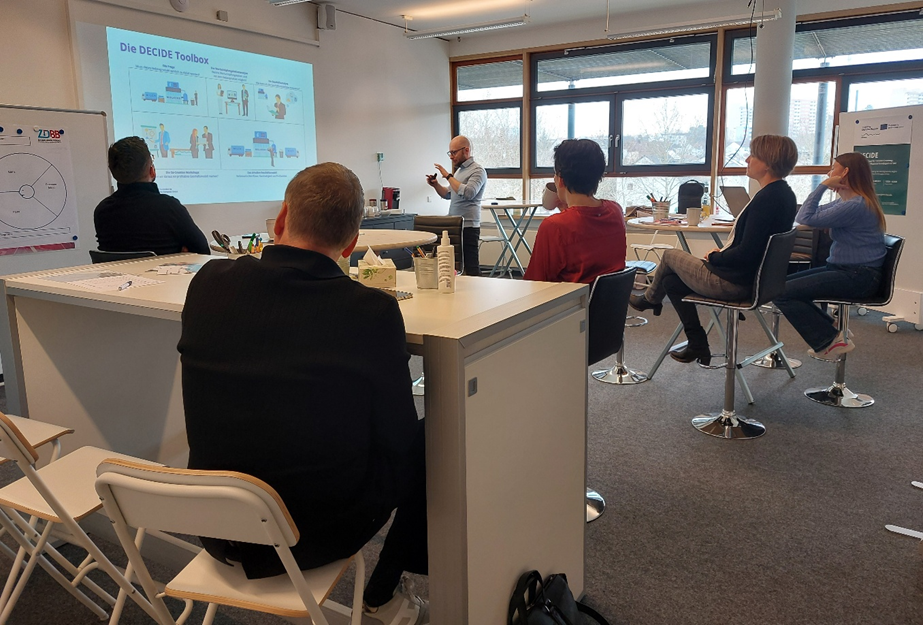
Pilot workshop "Ideas for the future: business models for sustainable success”, March 2025 in Böblingen, Copyright: Diana Schwarz-Dermann, ZD.BB Böblingen.
The main characteristic of the Workshop Concept is its variety of offers and flexible content, tailored to the specific needs and framework conditions of both workshop providers and participants. The Concept outlines the structure, objectives, learning methods, activities, and communication strategies needed to prepare, deliver, and follow up both project-internal and project-external workshops.
Different Workshop Offerings for Different Target Groups
Partners can choose from different workshop offerings (e.g., Offerings 1, 2, and sub-versions such as 2a, 2b), depending on whether the target group consists of CE beginners, advanced users, or experts. Delivery can be fully adapted—online, in-person or hybrid.
The workshops are designed to serve as interactive knowledge-sharing platforms, connecting with key DECIDE target groups:
Small and medium enterprises (SMEs) and start-ups
Business support organisations and sectoral agencies
Local, regional, and national public authorities
Education and research institutions
Other interest groups in CE-relevant sectors (food, textiles, packaging, batteries, smart cities)
Within these groups, a distinction is made between project-internal and project-external users, both of whom benefit from the Workshop Concept.
Project Internal Target Group
The project-internal target group, consisting of DECIDE project partners, plays a key role in testing, adapting, and applying the workshop formats. Through internal sessions—such as integration workshops, pilot trainings, and train-the-trainer events—partners gain hands-on experience with the tools and methods, refine materials, and ensure alignment with the project’s strategic goals. This internal use supports capacity building within the partnership and prepares partners to deliver high-quality workshops externally.
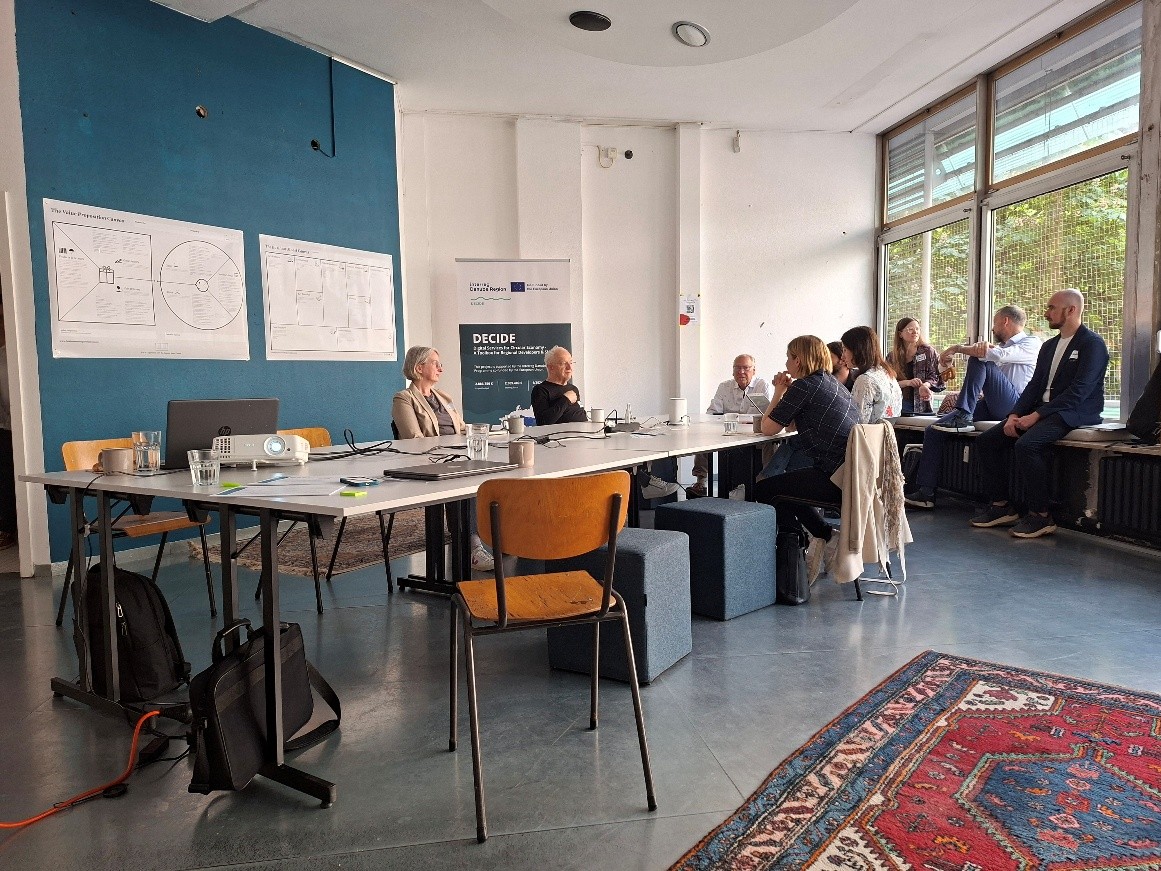
The second workshop in the series “Ideas for the Future: Business Models for Sustainable Success” took place on May 20, 2025, Copyright: Diana Schwarz-Dermann, ZD.BB Böblingen.
Project External Target Group
The project-external target group includes SMEs, start-ups, economic developers, public authorities, and educational institutions across the Danube region. These stakeholders will take part in workshops organised by DECIDE partners using the flexible formats and materials described in the Concept—ranging from introductory sessions to advanced modelling workshops, depending on their sector, needs, and level of CE experience.
Practical Relevance of Workshop Concept
The Workshop Concept was developed based on in-depth preliminary research and analysis, including partner questionnaires and target group mapping. This process helped identify:
Needs and expectations of workshop organisers
Participant profiles (e.g., knowledge levels, organisational roles, institution types)
Key logistical and engagement challenges—such as attracting participants, ensuring trainer expertise, and meeting sector-specific needs
This evidence-based design ensures that the Workshop Concept is not only comprehensive, but also practical and grounded in real project experience.
DECIDE Workshops are not only tools for training—they also respond to a critical challenge in CE implementation:
How can SMEs and regional developers identify and engage CE partners both within and beyond their value chains?
Many SMEs face obstacles like limited networks, resources, and visibility, which hinder cross-sector collaboration. The workshops offer practical opportunities to connect stakeholders, initiate value chain dialogue, and explore use cases and tools from the DECIDE Toolbox that support systemic innovation.
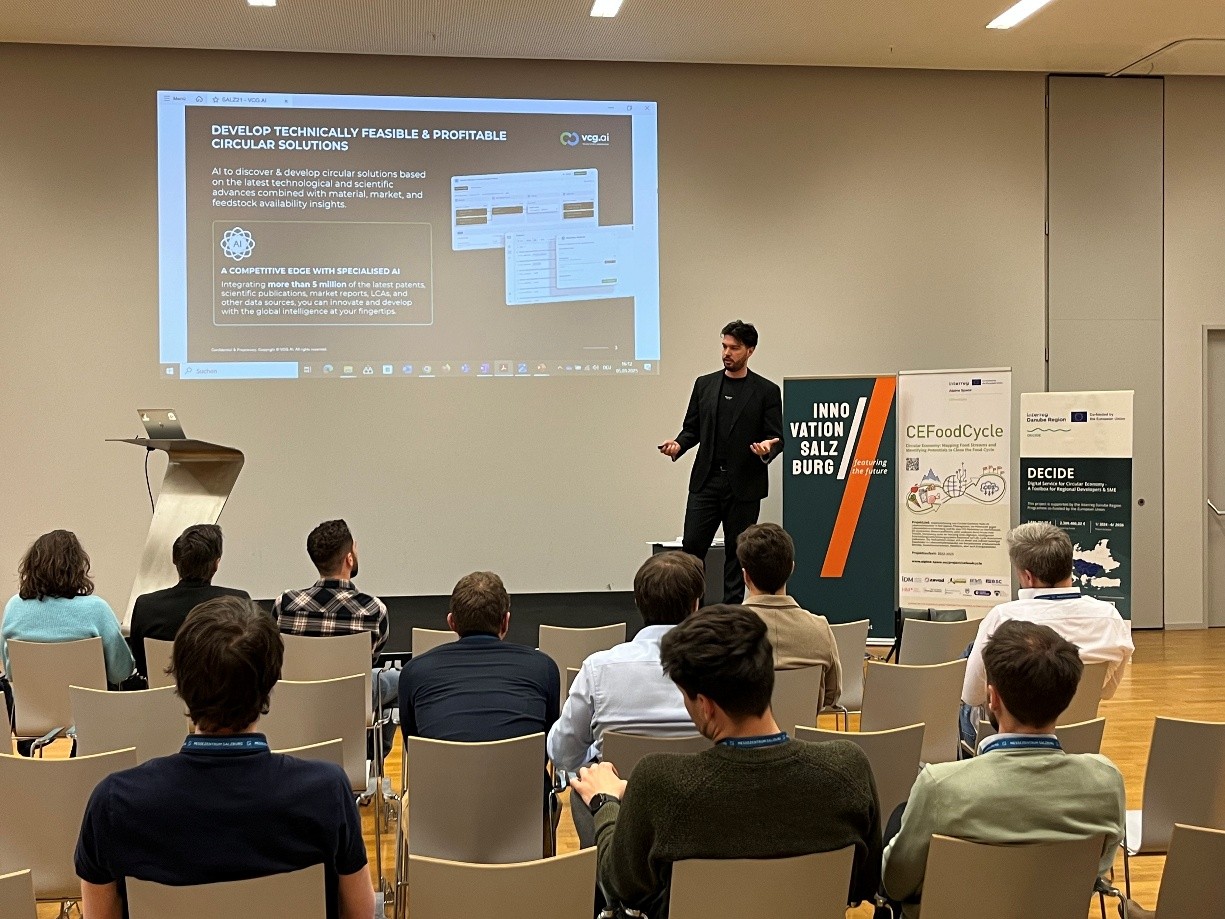
The interactive workshop “Circular Economy Meets AI – Rethinking Business Models” took place in March 2025, as part of salz21, a leading expo and conference dedicated to future-driven innovations. Copyright: Herman Zakharchenko & Benedikt Schemmer, Innovation Salzburg GmbH.
The DECIDE Workshop Concept is ready to be implemented across the Danube region and beyond. With modular formats, tested materials, and targeted guidance, it empowers partners and stakeholders to lead the transition to a circular economy — through practical, hands-on engagement.
🔗Follow us for more information : https://interreg-danube.eu/projects/decide
📩 Contact for guidance and materials: Severine Dommer, severine.dommer@zd-bb.de
Back to homepage
News & Events
Read the most recent updates and explore the upcoming events.

